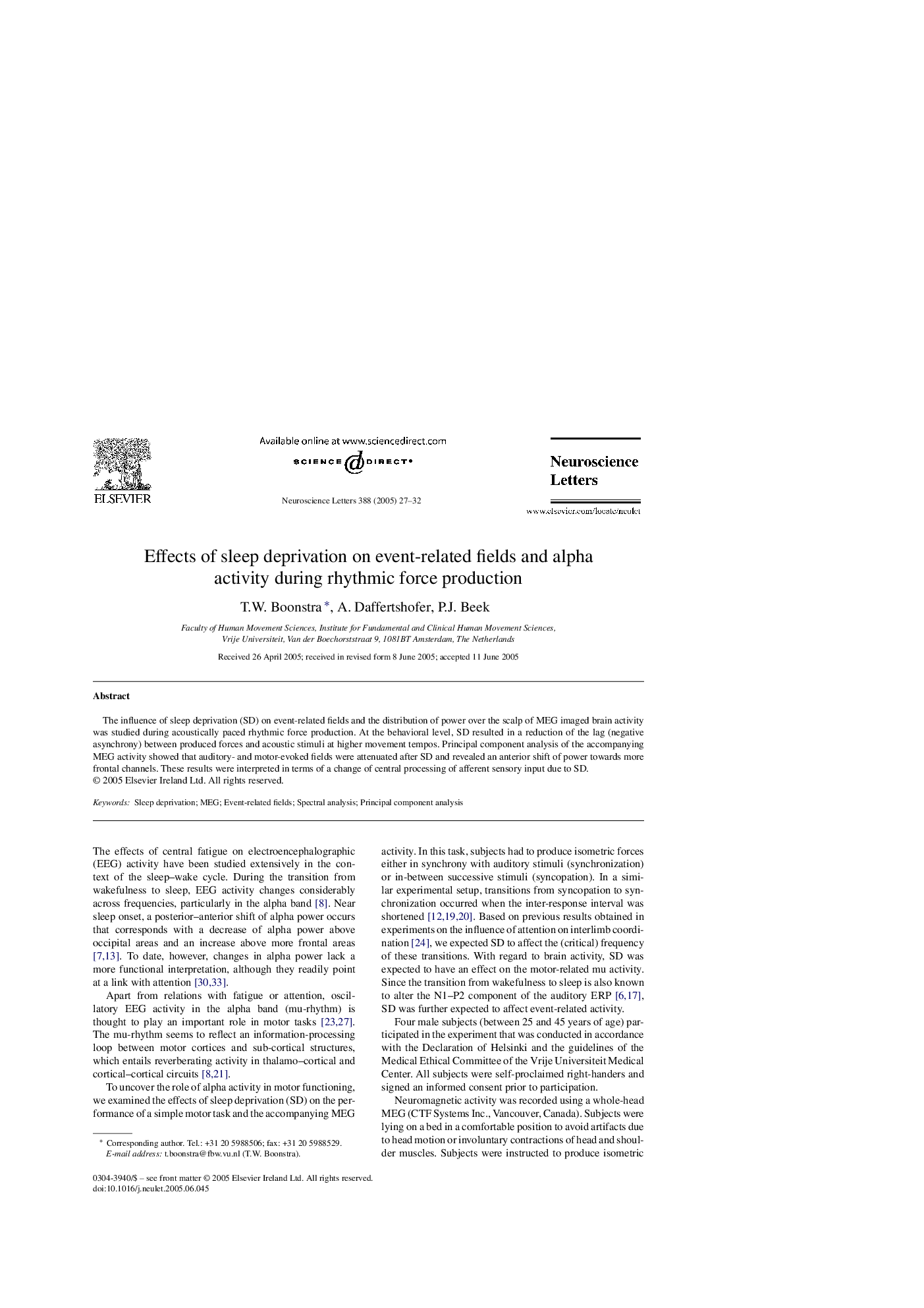| Article ID | Journal | Published Year | Pages | File Type |
|---|---|---|---|---|
| 9428977 | Neuroscience Letters | 2005 | 6 Pages |
Abstract
The influence of sleep deprivation (SD) on event-related fields and the distribution of power over the scalp of MEG imaged brain activity was studied during acoustically paced rhythmic force production. At the behavioral level, SD resulted in a reduction of the lag (negative asynchrony) between produced forces and acoustic stimuli at higher movement tempos. Principal component analysis of the accompanying MEG activity showed that auditory- and motor-evoked fields were attenuated after SD and revealed an anterior shift of power towards more frontal channels. These results were interpreted in terms of a change of central processing of afferent sensory input due to SD.
Related Topics
Life Sciences
Neuroscience
Neuroscience (General)
Authors
T.W. Boonstra, A. Daffertshofer, P.J. Beek,
